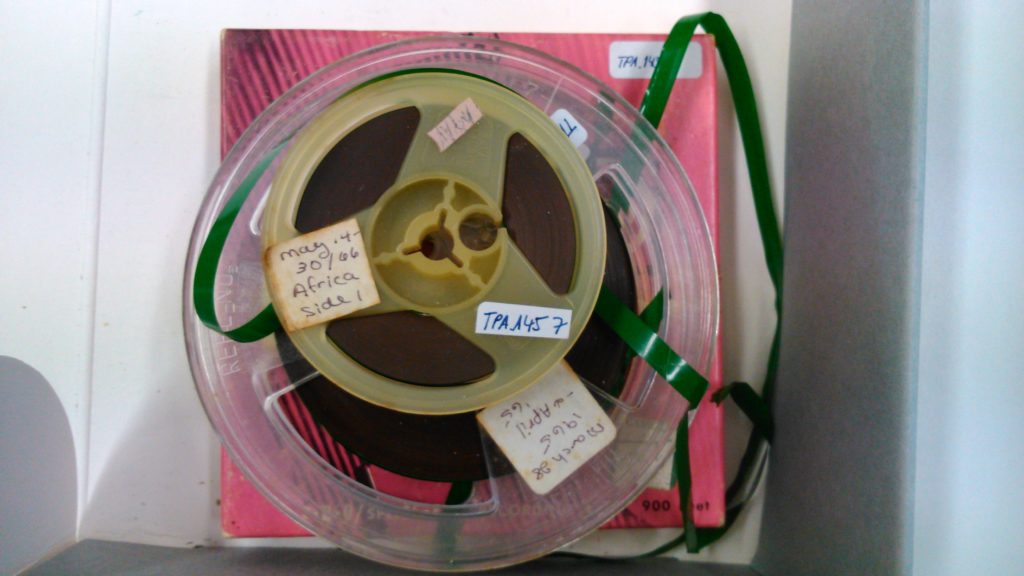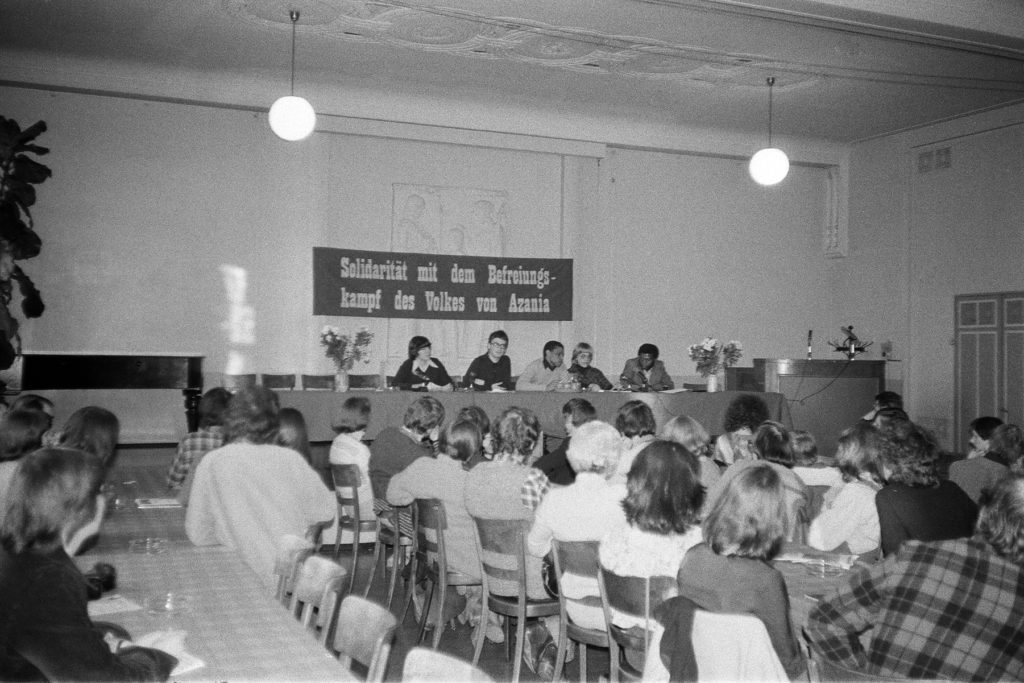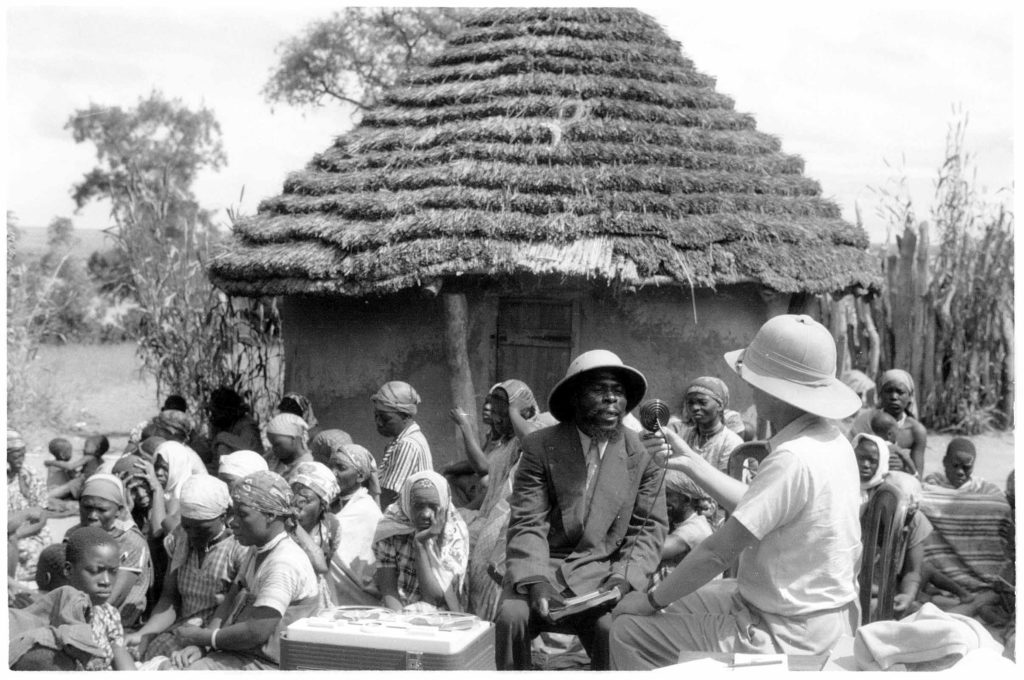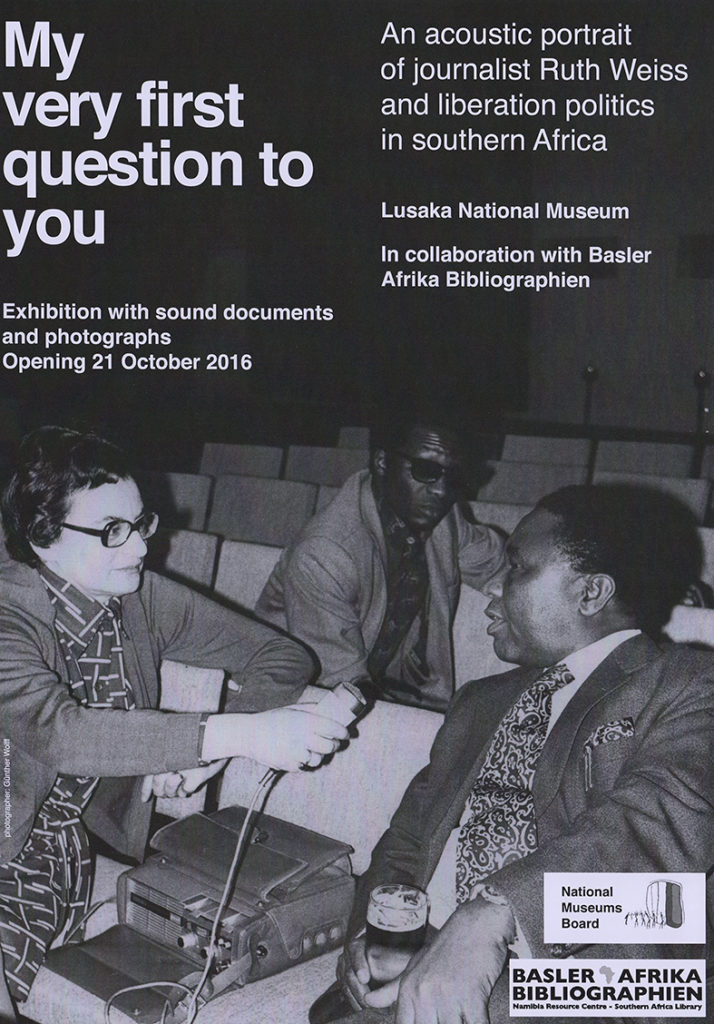What Does the Archive Sound Like?
Our sound collection comprises some 1,000 interviews, stories, radio features, language and music recordings which were conducted and recorded between 1952 and the 1990s in Namibia and southern Africa.
 Why do we collect and catalogue acoustic documents? In 2008, we catalogued and digitised our first sound archive, the Dammann Collection. It contains a remarkable oral literature archive from Namibia, recorded in the early 1950s. The collection was digitised and archived with the support of Memoriav, Switzerland’s network for the preservation of audio-visual heritage.
Why do we collect and catalogue acoustic documents? In 2008, we catalogued and digitised our first sound archive, the Dammann Collection. It contains a remarkable oral literature archive from Namibia, recorded in the early 1950s. The collection was digitised and archived with the support of Memoriav, Switzerland’s network for the preservation of audio-visual heritage.
These digitisation and cataloguing projects for sound archives led to a substantial Africanisation of the archive collections. Nearly all sound recordings entail conversations with Africans in African countries and document their viewpoints, oral traditions and many African acoustic everyday worlds. These sound archives thus stand in contrast to other collections from colonial contexts in which African voices in general are hardly documented. These sound archives often form part of personal archives and stand in close relationship to the images and written materials from the same collection.
Which Tunes, Sounds and Voices Are Collected in the Archive?
The Dammann sound collection contains oral traditions of all sorts. Alongside historical narratives on events and personalities, there are so-called praise songs, legends, sayings and songs, as well as autobiographical texts. In addition, there are linguistic recordings and those of Christian songs from African mission choirs, as well as recordings of Christian church services with “messages to Germany”.
Danis (!Habugu ams) — Honey (Bee Song), sung by Viktoria ǁHoeses, 2nd February 1954, Omaruru, Namibia. BAB, Ernst and Ruth Dammann Collection, TPA.39 36.22.
One of our largest sound collections refers to the recordings by the Jewish-German-South African journalist, Ruth Weiss. She conducted numerous interviews in the 1970s and 1980s with representatives from various economic and political sectors. Her interviewees included people from the liberation movements as well as civil society in southern Africa. Furthermore, the collection contains recordings from press conferences, political party meetings, independence celebrations and concerts. Based on this rich archive we mounted a sound exhibition with an artistic soundscape installation in 2014 which was shown in Basel, Cape Town, Lusaka and Bayreuth.
Interview with Libertina Amathila, 28th September 1979, Lusaka, Zambia. BAB, Ruth Weiss Collection, TPA.43 29.
 Other collections refer to events in Switzerland with representatives from African liberation movements, for example the archive of the Zurich solidarity committee, kämpfendes afrika (“Fighting Africa”). Audio letters to friends and relatives, BAB Archive talks and other event recordings are also to be found in our sound archive.
Other collections refer to events in Switzerland with representatives from African liberation movements, for example the archive of the Zurich solidarity committee, kämpfendes afrika (“Fighting Africa”). Audio letters to friends and relatives, BAB Archive talks and other event recordings are also to be found in our sound archive.
Photo and sound: Event organized by the solidarity committee kämpfendes afrika with Mike Muendane and Vuyisile Dlova (Pan Africanist Congress of Azania) and Barbara Müller (ka). 1st March 1980, Zürich, Switzerland. BAB, Collection Medic’Angola — kämpfendes afrika, BAA.5 62 / TAA.5 7.
Want to hear more? Our podcast features selected audio snippets from our sound archives.


